Last week while conducting The Emotional Eating Course, I was sharing with the participants on the nature of food products today and how they are glorified through creative marketing. (I would know as I used to be a marketing major and worked in the fast-moving consumer goods industry.)
Take for example, Nutella. Some of you may love Nutella. I used to eat a lot of it. Spreading it on bread, licking it with the spoon, consuming it directly from the bottle. As a child, I remember the Nutella mini-packs marketed at kids that cost 20 or 50 cents (those were the times before massive inflation).
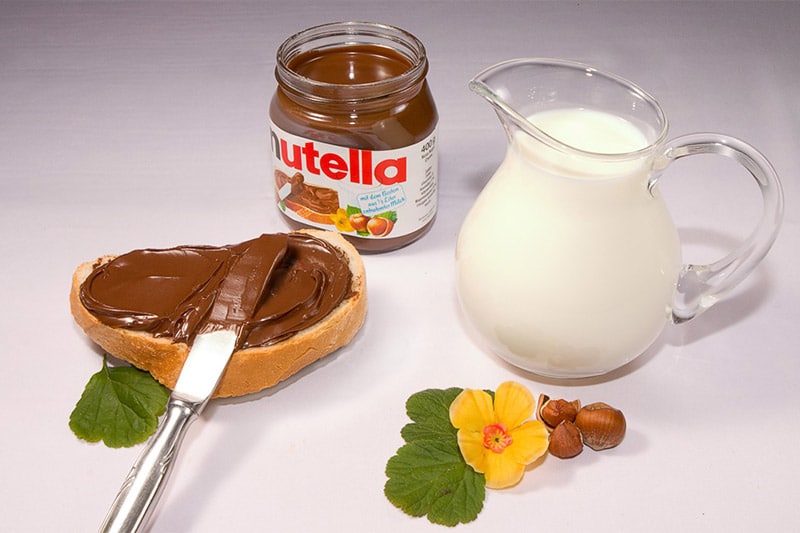
One of the many lovely Nutella images we would have seen in Nutella advertising along supermarket aisles, on TV, etc. (Image: Wiki)
But did you know? Nutella is made up of over 70% sugar and palm oil. The largest ingredient is sugar, with more than 56% being sugar. Here is a visual representation of the ingredients in Nutella:

Click to see bigger image. Nutella only has five main ingredients: sugar, palm oil, hazelnuts, skim milk, and cocoa. Over 70% of the product is sugar and palm oil. (Image)
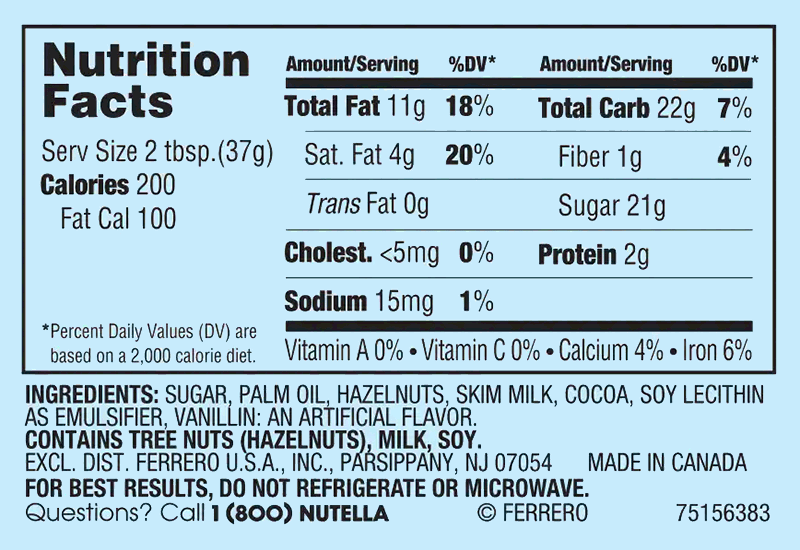
Nutella Nutrition Label.[1] They don’t show the percentage composition of the ingredients since it’s only going to demystify their marketing. But they have to show the sugar content and as you can see, 21g of every 37g serving is sugar. That is over 56% of what is often marketed as a “chocolate/hazelnut spread.”
So when you eat Nutella, you’re really eating sugar and oil. If you don’t already know, sugar is a deeply problematic ingredient. Sugar intake has increased sharply over the last 100 years while diabetes-related deaths and diabetes prevalence rates have risen in parallel.[2]
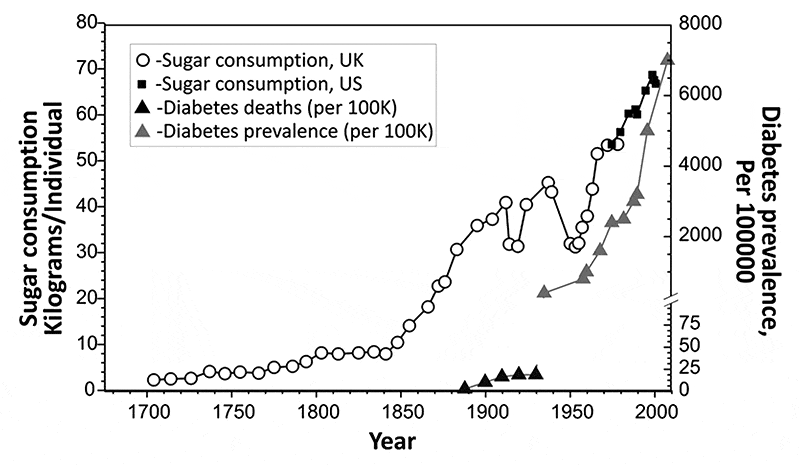
Parallel epidemic of diabetes and sugar consumption (Image)
In a 2013 study by Basu, Sanjay et al., it was found that duration and degree of sugar exposure correlated significantly with diabetes prevalence in a dose-dependent manner.[3] Sadly, sugar refiners and manufacturers of sugary foods and drinks have sought to influence medical research and even public health recommendations, so you’ll find conflicting studies on the health effects of sugary food/drinks depending on the researcher’s financial ties to the Food & Beverage industry.[4]
Palm oil is another problematic ingredient found in almost all our foods now. In a 2016 study by The European Food Safety Authority (EFSA), they investigated three substances found in vegetable oils when refined at temperatures above 200 degrees Celsius (a routine process when making processed food). Reviewing previous scientific studies, EFSA found that repeated exposure to glycidyl fatty acid esters (or GE), a substance in vegetable oils, increases the incidence of tumors in rats and mice — probably by damaging the genetic information in their cells. Most vegetable oils contain GE while palm oil contains the highest level of it.[4][5]
Dr Helle Knutsen, Chair of the CONTAM Panel, said: “There is sufficient evidence that glycidol is genotoxic and carcinogenic, therefore the CONTAM Panel did not set a safe level for GE.”[6] In 2016, Coop, Italy’s largest supermarket chain, pulled around 200 products containing refined palm oil from its shelves for this reason.[7]
Bottomline? If you want to eat hazelnuts, buy actual hazelnuts. If you want to eat cocoa, buy real dark chocolate. Even the nuts used in Nutella aren’t the healthiest form of hazelnuts — they are roasted and there is a wide range of trans fatty acids and acrylamide that could be potentially be present in (commercially) roasted nuts.[8]
Don’t buy Nutella thinking that you’re buying “hazelnut cream” or “chocolate cream” (under the Italian law, Nutella cannot even be labeled as a “chocolate cream” as it does not meet minimum cocoa solids concentration criteria[9]). These are marketing spins to create a brand image, and this brand image is often associated with strong emotions due to candy companies’ strong hold over mass media today with their significant spending (see how Nutella tries to build an emotional bond with its brand with advertisements of family eating Nutella together, kids enjoying Nutella, etc.).
This then leads to emotional consumption where someone eats something to chase after an emotion, when they should really be eating based on their real food needs. This is something that I’m currently working with my participants to break through in The Emotional Eating Course, and it’s amazing to see my participants breaking through their past ties with food week after week.
Unfortunately emotional eating is deeply rooted in our food culture today, but by gaining awareness and consciousness of our eating behaviors, and the actual nature of the food we are eating, we can slowly break this link and unhealthy behavior. :)
Read: How I Overcame Emotional Eating (series)

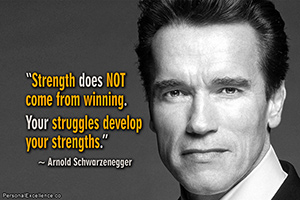
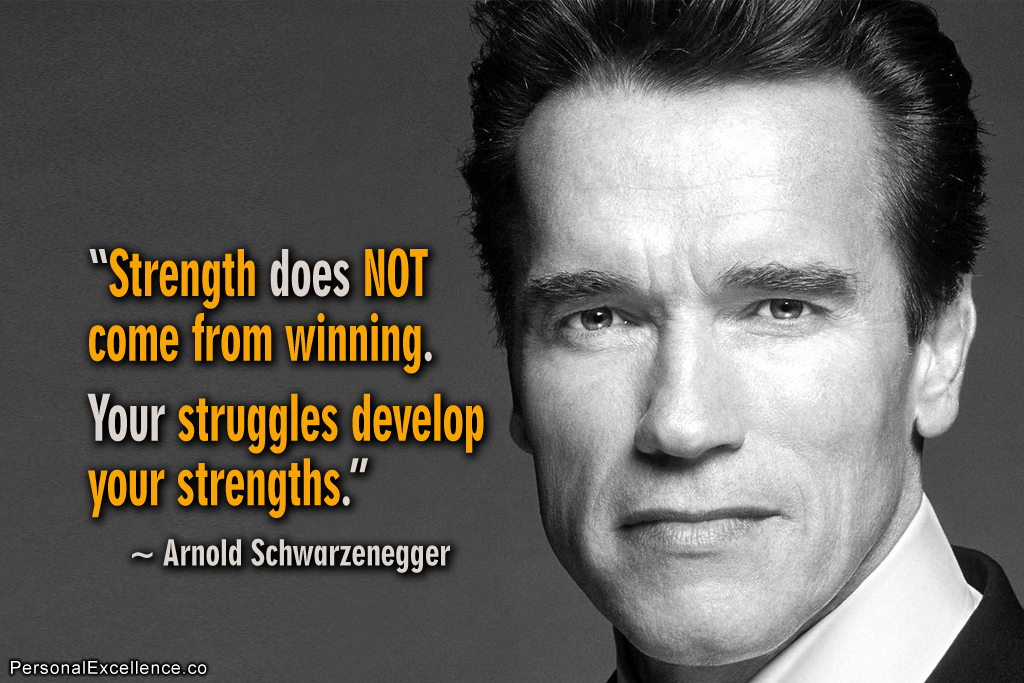




 I hope you find my content helpful. Join my community of 65,000 readers and get my latest articles delivered to your inbox. Your email is safe and I never send spam.
I hope you find my content helpful. Join my community of 65,000 readers and get my latest articles delivered to your inbox. Your email is safe and I never send spam.
Commenting for this post is closed.